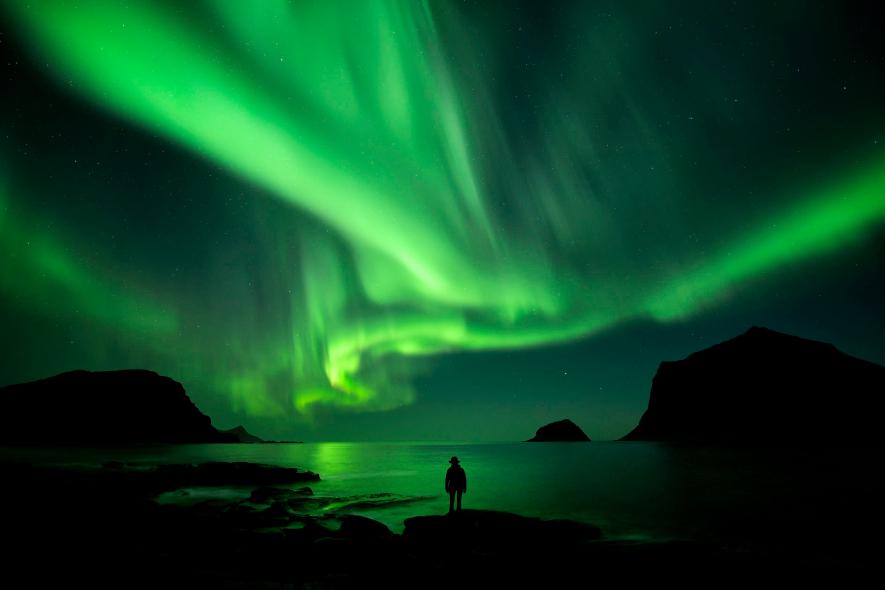PROTECTIVE ATMOSPHERE
Near the surface, an ocean of air that consists of 78 percent nitrogen, 21 percent oxygen, and 1 percent other ingredients envelops us. This atmosphere affects Earth's long-term climate and short-term local weather; shields us from nearly all harmful radiation coming from the sun; and protects us from meteors as well. Satellites have revealed that the upper atmosphere actually swells by day and contracts by night due to solar activity.
Our planet's rapid spin and molten nickel-iron core give rise to a magnetic field, which the solar wind distorts into a teardrop shape. The solar wind is a stream of charged particles continuously ejected from the sun. The magnetic field does not fade off into space, but has definite boundaries.

The silhouette of a woman is seen on a Norwegian island beneath the Northern Lights (aurora borealis).
PHOTOGRAPH BY GARCIA JULIEN, GETTY IMAGES
When charged particles from the solar wind become trapped in Earth's magnetic field, they collide with air molecules above our planet's magnetic poles. These air molecules then begin to glow and are known as the aurorae, or the Northern and Southern Lights.
nice picture